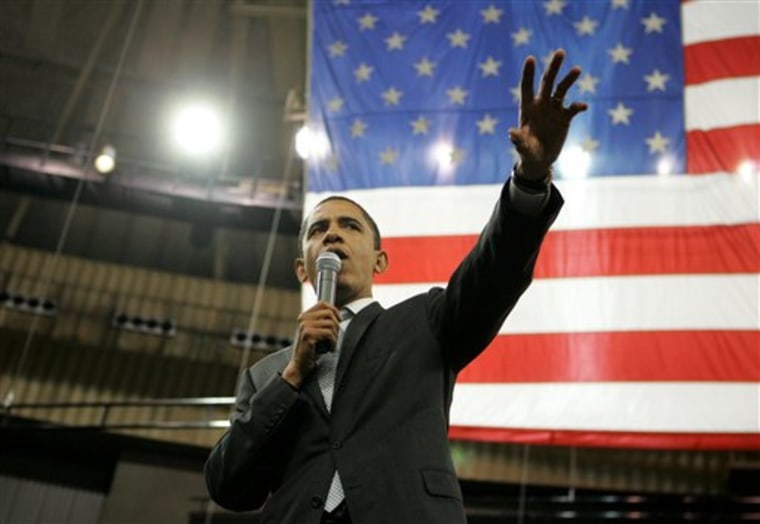People here like to say everything is bigger in Texas, and their oversized presidential contest is no different with not just a primary election, but a caucus added on, too.
The unique combination pits Barack Obama's skill in caucus organizing against Hillary Rodham Clinton's success in big-state primary campaigns.
Their different strengths have created the remarkably close race for the Democratic presidential nomination.
Obama was able to keep pace and eventually collect more convention delegates than Clinton in part by building wins in the smaller caucuses in places like North Dakota, Idaho and Minnesota. He's won 13 caucuses to her two.
Those are votes that Clinton's campaign often overlooked in pursuit of a more traditional campaign focused on racking up big primary victories in places like California, New Jersey and her home state of New York. Obama has won more primaries overall, 14 to her nine, but she won four of the five biggest prizes so far.
Primary versus caucus
Texas, with 193 delegates up for grabs Tuesday, is the third-largest contest in the country and has some advantages for Clinton with its large Hispanic population and voters being more familiar with her. Of those delegates, 65 percent will come from the primary, and 35 percent from the caucus.
But Bill Clinton warned voters Wednesday that his wife could beat Obama at the polls, only to have victory snatched away later at the caucuses.
"A lot of people think Hillary will win in the day time and her opponent will come in the night and take back the votes she won," he said.
Hillary Clinton has said she thinks primaries are more fair and democratic because voters make their decisions in private polling booths, as in a general election. In the caucuses, participants must gather at a set time for sometimes lengthy party-run meetings where they publicly declare their choice, and turnout is inevitably lower.
Planning ahead
Obama's campaign realized early on that caucus contests could be an opportunity for an upstart candidate, like himself, to build support.
Flush with cash after successful early fundraising last year, his campaign dispatched professionals to organize those states months before Clinton's campaign paid any attention to them. Despite her support from the Democratic establishment nationwide, she often was too slow to catch Obama's head start.
"We didn't make as much of an effort as we probably should have" in smaller states, Clinton strategist Harold Ickes conceded recently.
Clinton's organization was built for Feb. 5, Super Tuesday, and didn't really look beyond that. That caught them flat-footed in states that followed and she began looking forward to wins in the bigger states a month out, such as Texas and Ohio. Those states, and Rhode Island and Vermont, hold primaries Tuesday.
The Clinton campaign insists it is evenly matched with Obama in the Texas caucus — both campaigns, overwhelmed by the crush of earlier contests and unaware the campaign would extend into March, only put staff in the state in recent weeks. Clinton has 22 offices to Obama's 18.
Vote early, then caucus
Both campaigns quickly pulled together a three-pronged strategy that fits the complicated process here.
First, they have been encouraging their supporters to participate in the user-friendly early voting process that ends Friday. Voters could cast their primary ballots for 11 days at polling stations in places as accessible as their local grocery store, library or shopping mall.
Second, the campaigns want anyone who didn't vote early to participate in Tuesday's primary.
And finally, they are directing backers to the caucuses that are scheduled to begin at more than 8,000 locations 15 minutes after the polls close Tuesday. Only those who vote in the primaries can participate in the caucuses.
"You will be the only people in the country who can vote twice in this election and not break the law," Bill Clinton told voters this week.
